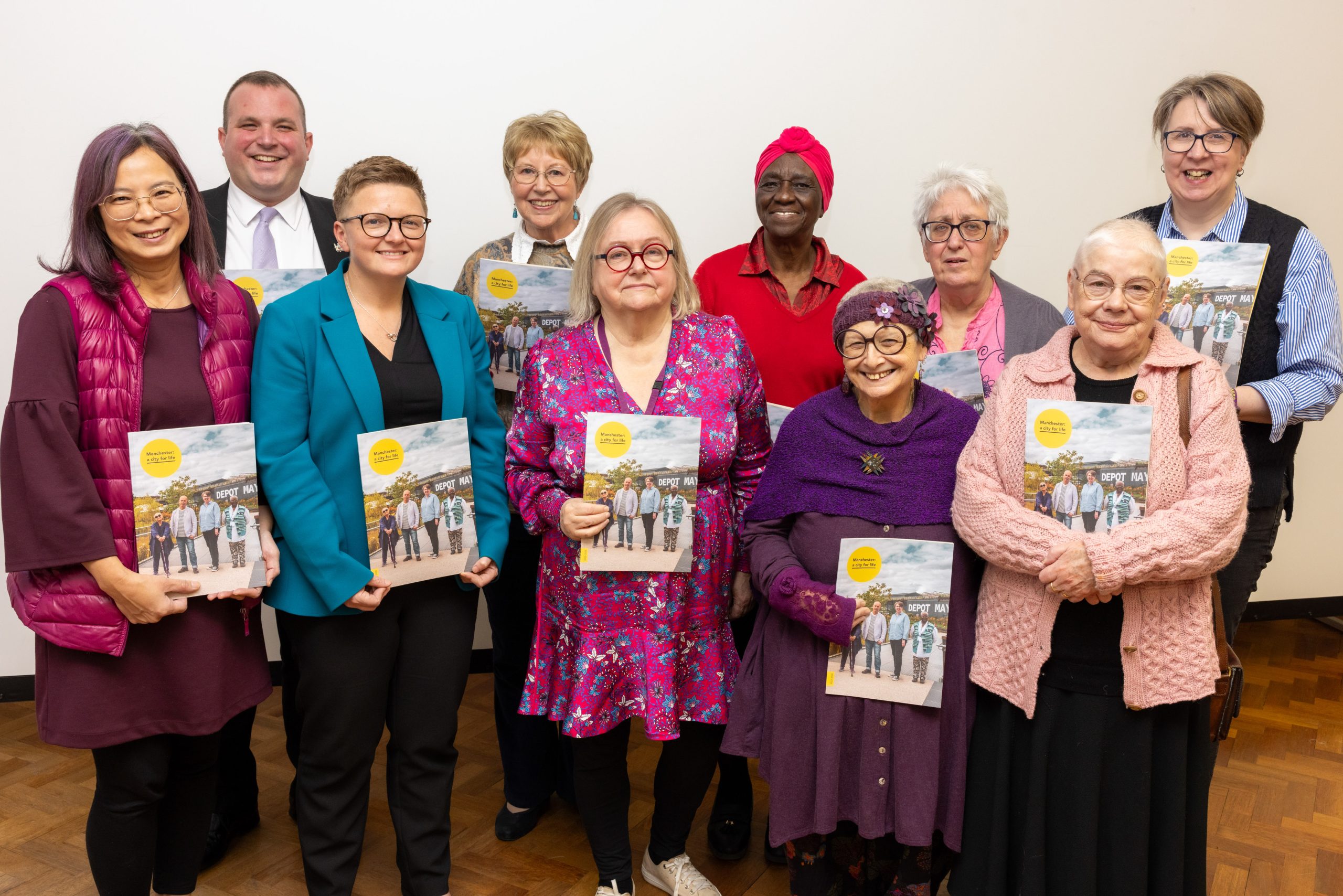The strategy, ‘Manchester: a city for life 2023- 2028′ builds on the foundations of age-friendly work ongoing in the city for the last two decades.
It sets out the vision and priorities for Manchester to continue as an age-friendly city where people can age happily with equality, respect, and independence and where they have a voice in the life of the city and are economically, physically, and socially active.
Building on its age-friendly programme, the strategy will focus on four themes: Being heard and age equality; Age-friendly neighbourhoods where we can all age in place; Age-Friendly services that support us to age well; and Age-friendly work skills and money.
Developed through a wide-ranging consultation with services and voluntary sector colleagues and the Age Friendly Manchester Older People’s Board, older people’s voices and experience sit at the heart of the new age friendly strategy.
The impact of the Covid 19 pandemic and the national cost of living crisis has had a real impact on the over 50s population. These events have helped to determine the current priorities, improving, and strengthening the age friendly Covid 19 recovery plan across neighbourhoods to help mitigate some of the worst effects of the pandemic, including better social connections and access to services as well as a greater range of targeted support and strengthened financial security.
This approach fits with future priorities and sits alongside Manchester’s other key strategies including, Work and Skills, Digital, and Anti-Poverty strategies as well as the Making Manchester Fairer programme which aims to address health inequalities in the city, including how long people live better opportunities around work and housing as well as work to tackle cost of living pressures and poverty which are integral to improving health and wellbeing.
Welcoming the new strategy, Councillor Thomas Robinson, Executive Member for Healthy Manchester and Social Care said:
“Older Mancunians are the backbone of this city. Manchester is defined by our communities and what it is to be Mancunian is derived from the solidarity you get from being part of them. Our older residents are central to both our culture and resilience as a city. We are determined to celebrate and convey these values through this strategy. It is a message of hope and one which will take us through the next five years working to make Manchester the most age-friendly city in the country. This strategy represents a message of hope, and together, I know we will accomplish this.”
Elaine Unegbu, Chair of the Age Friendly Manchester Older People’s Board said:
“We are celebrating the 20th anniversary of the city’s age-friendly programme. There have been many changes over time, including a name change, but we have always campaigned for people in middle to later life living in Manchester to have equality and a voice in the affairs and plans of the city. We have tried to influence the way services are designed, and delivered, and continue to make sure our opinions and aspirations are taken seriously and will continue to do so. Manchester’s Age Friendly work is seen as trail-blazing and is recognised worldwide for its innovative approaches and inclusivity.”
Councillor Joan Davies, Lead member for Age Friendly Manchester said:
“Manchester is well-established and highly regarded as an Age Friendly city. We want to build on the successes of the past, adapting them to a changing world as we promote positive views on ageing, encourage reflection, and change how our society discusses and responds to ageing, driving forward real choice for all.”
In 2010 Manchester launched a ten- year strategy – Manchester: A Great Place to Grow Older, which was refreshed in 2017 – Manchester: A Great Place to Grow Older 2017-2021.
A selection of the highlights from the past five years include:
creation of age-friendly specialist roles within the Buzz Healthy living service and support for 12 age-friendly local networks.
Strategic plans to build 15,000 new homes over 20 years in Victoria North, adopting age-friendly design principles
Expansion of age-friendly community benches across the city
Delivered two Pension Top Up campaigns to increase take-up of Pension Credit entitlement
Over-50s Employment and Skills Support Group established to address the issue and barrier facing older workers and job seekers
Community Nutrition and Hydration Service adopted a neighbourhood and community development approach to prevention
Libraries and Parks adopted age-friendly service standards
Find more details in the strategy here – https://www.manchester.gov.uk/info/200091/life_over_50/8388/find_out_about_age_friendly_manchester/2
